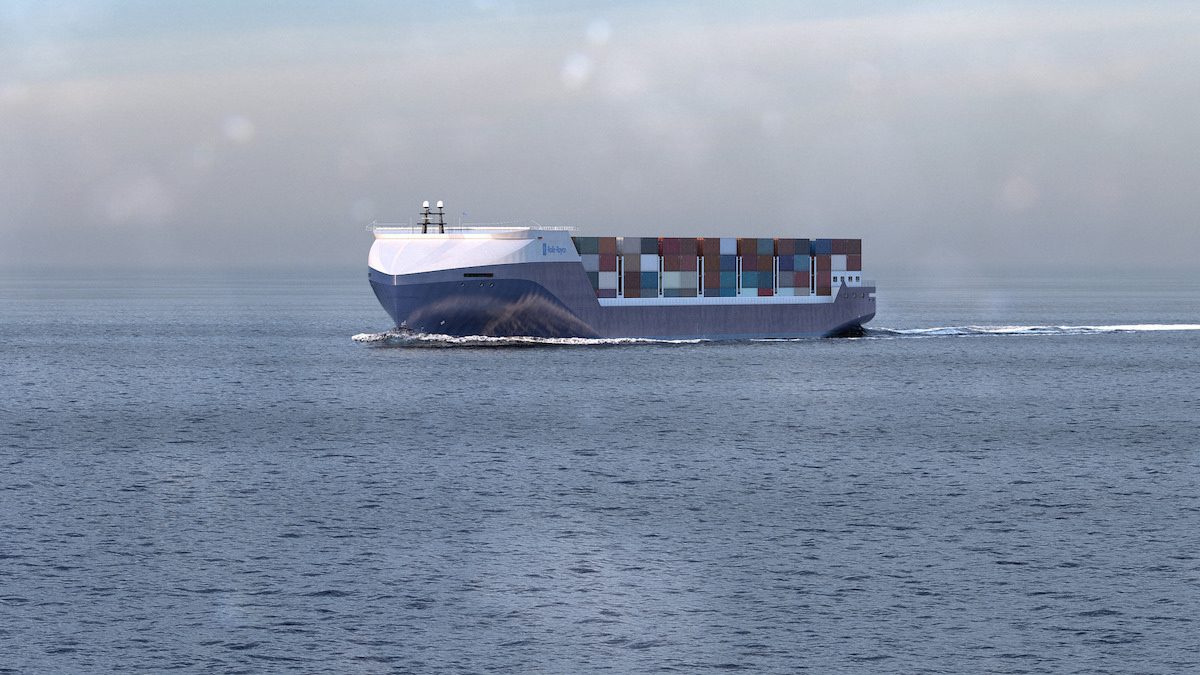India’s Oil Demand Drives CMB Tech Fleet Diversification
By Dimitri Rhodes Nov 7 (Reuters) – Belgian oil tanker company CMB Tech says it will focus on the fast growing market in India as it reported third quarter results...


A conceptual design by Rolls-Royce of an 1,000 TEU unmanned feeder vessel. Image credit: Rolls-Royce
Rolls-Royce has signed a deal with Google to gain access to the tech giant’s intelligent awareness systems to help make existing vessels safer and eventually leading to the development of autonomous, unmanned ships.
The agreement, believed to be the first in the marine sector, was signed Tuesday at the Google Cloud Summit in Sweden. It allows Rolls-Royce to use Google’s Cloud Machine Learning Engine to further train the company’s artificial intelligence (AI) based object classification system for detecting, identifying and tracking the objects a vessel can encounter at sea. The Google Cloud Machine Learning Engine uses the same neural net-based machine intelligence software that powers many of Google’s products, including image and voice search.
“While intelligent awareness systems will help to facilitate an autonomous future, they can benefit maritime businesses right now making vessels and their crews safer and more efficient. By working with Google Cloud we can make these systems better faster, saving lives,” said Karno Tenovuo, Rolls-Royce, SVP Ship Intelligence.
Machine Learning is a set of algorithms, tools, and techniques that mimic human learning to solve specific problems. By analyzing existing data sets, machine learning can be used to recognize patterns in data, making predictions from previously unseen data. The bigger the data set, the more complex the patterns the model can recognize and the more accurate the predictions.
“Rolls-Royce will use Google Cloud’s software to create bespoke machine learning models which can interpret large and diverse marine data sets created by Rolls-Royce,” the company said in a statement. “Rolls-Royce’s expertise in the maritime sector will be used to prepare the data to train models, ensuring that it is relevant and in sufficient quantity to create statistical significance. As part of the machine learning process, the models’ predictions are evaluated in practical marine applications, allowing the models to be further refined.”
“By accessing this software through the Cloud, the models can be developed from anywhere in the world and are immediately accessible globally allowing thousands of users. Models can therefore be trained on large quantities (terabytes) of data. This will be essential as autonomous ships become commonplace,” Rolls-Royce said.
In the longer term, Rolls-Royce and Google intend to undertake joint research on unsupervised and multimodal learning. The two companies will also test whether speech recognition and synthesis are viable solutions for human-machine interfaces in marine applications, as well as work on optimizing the performance of local neural network computing on board ships using open source machine intelligence software libraries such as Google’s TensorFlow.
“Intelligent awareness systems will make vessels safer, easier and more efficient to operate by providing crew with an enhanced understanding of their vessel’s surroundings. This will be achieved by fusing data from a range of sensors with information from existing ship systems, such as Automatic Identification System (AIS) and radar. Data from other sources, including global databases, will also have a role,” Rolls-Royce said.
Join the gCaptain Club for curated content, insider opinions, and vibrant community discussions.


Join the 110,198 members that receive our newsletter.
Have a news tip? Let us know.
Access exclusive insights, engage in vibrant discussions, and gain perspectives from our CEO.
Sign Up




Maritime and offshore news trusted by our 110,198 members delivered daily straight to your inbox.



Essential news coupled with the finest maritime content sourced from across the globe.
Sign Up